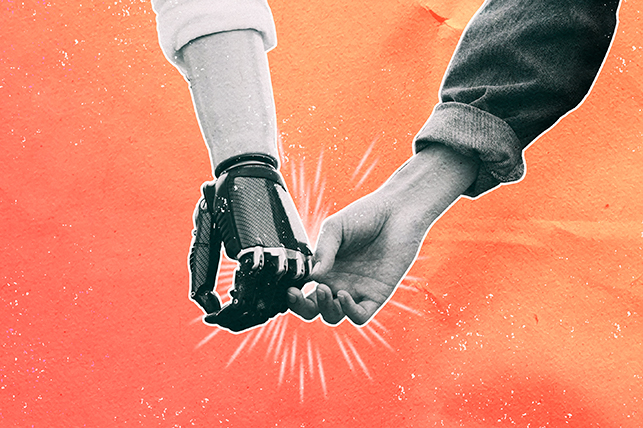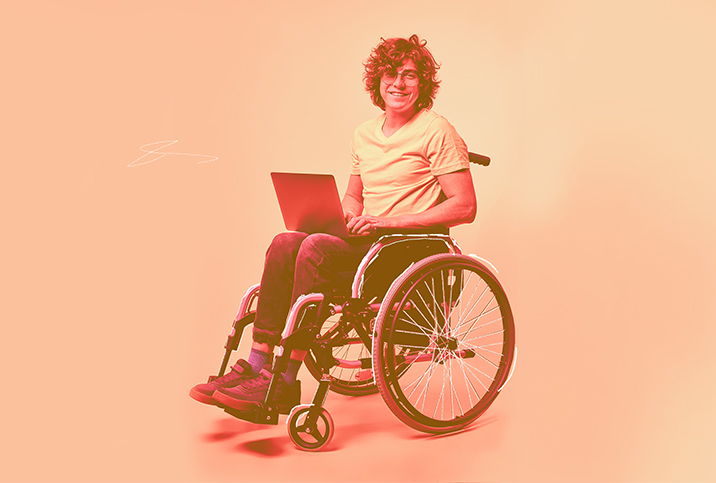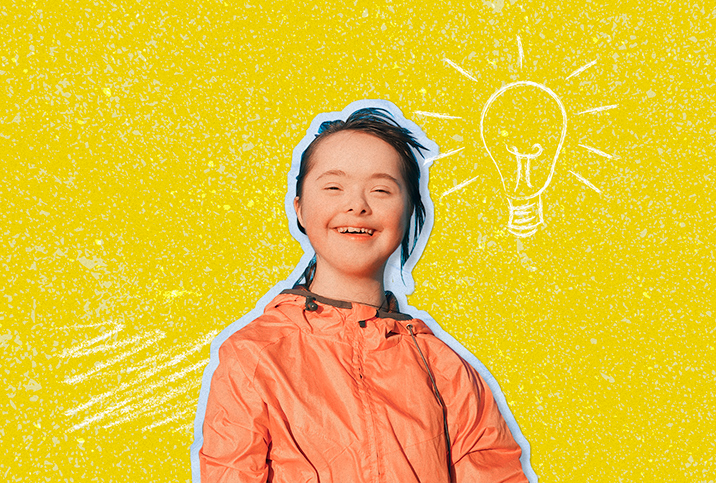How Life and Relationships Change When Your Love One Faces Disability

When life takes an unexpected turn and a spouse or partner becomes disabled, the challenges faced by both individuals in the relationship can prove overwhelming. Coping with a profound change requires emotional resilience and practical strategies to best navigate these new realities.
Experts provide insight into the intricate process of adapting and supporting each other when a loved one experiences a disability. From fostering open communication to finding resources and seeking professional help, we'll explore various approaches to help couples navigate this challenging journey with strength, compassion and resilience.
The challenges when your partner becomes disabled
When someone suddenly becomes disabled, it significantly affects the individual and the family around them. But what about their partner or spouse?
"The initial impact that can happen for a partner or loved one would be the feeling of overwhelm and disbelief, regardless of the disability being physical or mental," said Teri Wilder, L.M.H.C., a licensed mental health counselor in Butler, Indiana, with Thriveworks. "There is a lot to take in when the disability diagnosis occurs, and it means a lot is going to change in the immediate."
She said they may face taking on a lot more responsibility in providing support to their disabled loved one, engaging in household responsibilities, providing financial support and caring for family needs.
They may also be impacted physically or mentally and may not be able to work. This can place added pressure on family and friends to ensure things such as bills and finances are covered.
In the long-term, the partner may experience ongoing stress and emotional strain as they provide care and support, said Martha Tara Lee, D.H.S., an AASECT-certified sex educator and clinical sexologist with Eros Coaching in Singapore. They also may face financial hardships if their loved one is unable to work or requires expensive medical care.
In the long-term, the pressure for a partner to maintain support for an individual can wear them down, Wilder added. It can also impact their ability to work—long periods of time off from work are sometimes necessary—and potentially lead to extended medical stays.
"A person with a disability is noted to have two times the risk of developing additional health conditions including, but not limited to, depression, asthma, diabetes, stroke, obesity and poor oral health," Wilder said.
These individuals may have reduced life expectancies, face difficulties with transportation and experience additional struggles associated with unfair health treatment conditions.
Lee said partners may face challenges they are unprepared for, such as changes in relationship dynamics and a loss of independence. They may also struggle with feelings of guilt, resentment and frustration.
Ask questions so you know what you can do to help them but remember you are not a doormat.
Mentally and emotionally, a partner can become worn down and emotionally distressed if they are suddenly thrust into the role of a primary caregiver. That's especially true if they do not receive additional support or have respite themselves in caring for their loved ones, Wilder said.
Frequently, spouses or parents are primary caregivers and experience caregiver stress caused by a lack of ability to engage in self-care, and from the amount of time and energy spent focusing on their loved ones.
"Their worlds change also, and while they very much love their partner or loved one, they still must come to grips with ways in which their independence is no longer their own," Wilder said.
How to care of yourself when you're caring for your partner
Even when you're immersed in the responsibilities and demands of caring for a disabled partner, it's essential to not overlook the importance of self-care.
As a caregiver, it can be easy to prioritize the well-being of your loved one above your own. Neglecting personal needs, however, can lead to physical and emotional exhaustion that impacts your ability to provide effective care.
Wilder said there are two essential areas of life to pay attention to when caring for a loved one who is disabled: self-care and communication.
Self-care
"One of the biggest issues is feeling like you don't have time to take care of yourself when you're caring for someone who needs more than you," Wilder said.
She offered some ideas for how to take care of yourself:
- Arrange for your own therapy. Vent and check in with what's happening deep down for you. Plus, learn some good coping skills to manage your anxiety.
- Make the most of your time. Spend an evening with friends, read a book, work on your favorite hobby, watch your favorite sport, spend time with a friend having coffee or touch base with family.
- Sometimes, it's about you. Go take a walk, ensure you're getting the right nutrition and feed your brain with knowledge beyond just knowledge connected to your loved one's disability.
- Take micro-vacations. Even an hour or two away from your responsibilities can feel like a vacation. There's nothing wrong with you taking some time to recharge.
"The sky is the limit, but you must start with doing it," Wilder said. "Make you a priority also."
Communication
Ensure you are communicating with your loved one. If they're doing something or saying things that hurt you, speak up.
"Just because they have a disability does not give them the right or ability to use it on you when they are frustrated or hurting," Wilder said.
She recommended talking about the right ways to address feelings together and expressing those feelings and working through them together, rather than acting as an emotional punching bag.
Ask questions so you know what you can do to help them but remember you are not a doormat. Spend time focusing on each other and your deep connection every day.
The signs you might need support
"Being aware when you're at risk of not being able to cope is vital so that you can catch it earlier on and work toward correcting it faster," Wilder said.
Because you care so deeply about the person you're caring for, you may be tempted into the feeling that you can rescue or save them.
Just because your loved one might be disabled doesn't mean they can't understand you or hear you when you assume they can't.
"You cannot," she said. "And in fact, the less you care for yourself and the more they begin to rely on you, the more their emotional dependence may begin to feel needy and demanding."
Trying to meet the demands of everyone can be overwhelming and stressful, leaving you feeling as if there's not enough of you to go around.
Lee said the signs that someone may not be coping or is heading toward caregiver burnout include:
- Changes in appetite
- Changes in sex drive
- Depression or feelings of hopelessness or helplessness
- Difficulty perceiving reality
- Extreme mood swings—from feeling depressed to feeling euphoric
- Feelings of exhaustion
- Irritability
- Lack of interest in activities you once enjoyed
- Low self-esteem
- Physical symptoms such as fatigue, headaches or stomach problems
- Sleep disorders
- Withdrawal from social activities
Seek professional support if you're experiencing any of the above symptoms.
"Most importantly, if someone is experiencing thoughts of harming themselves or harming someone else, then they should seek help immediately," she added.
Available support
Support of many kinds is available to partners and caregivers, Wilder said. The first two are couples/marriage counseling and individual mental health therapy. Finding in-person or telehealth options is easier than ever.
Most insurance companies have a care manager or case manager program that can help you navigate the process to locate additional home help/health support, if necessary. This will be dependent on your insurance provider and the services available. Contact the member services or benefit services department of your insurance company to find out more about this service and if it's offered.
United Way or *211 in each state also has a variety of free resources in most areas. They will provide you with knowledge, resources and access to support for whatever questions you have about matters such as rent assistance, utility assistance, mental health assistance and food pantry information in your area.
You may also be eligible to sign up for Medicare or Medicaid resource benefits in your state of residence. You'll want to contact your local Family and Social Services Administration (FSSA) office to see if there's help in the form of additional monetary support, and food stamps and insurance benefits. This would also be the location you'd contact to find out more information on disability resource benefits.
Key points to remember
Wilder listed five key strategies you can use as a guide when you're caring for a spouse, partner or loved one who suddenly becomes disabled:
- Ask first before assuming your help is required. Making such an assumption might result in an angry or frustrated response when it's not warranted. Most individuals prefer to remain as independent as possible, thus maintaining their own quality of life for as long as they can. And that's something to be respected.
- You may need to try different solutions before finding the right fit. Don't be discouraged if you don't get something right the first time; simply try to be creative in your next approach and try again.
- Remember, it's never about their outward behavior, it's about the feeling that's behind it. If someone is acting out, try to find out what is happening emotionally and why, and then deal with that.
- Offer your support. That could be as simple as being physically present and silent. Or you could join them to hit a few eggs into the field with a pickleball bat. (Hint: You might need a poncho for this rage-driven activity.) Whatever that support looks like, don't forget to stop and check your own feelings and make sure you're taking care of yourself.
- Just because your loved one might be disabled doesn't mean they can't understand you or hear you when you assume they can't. If you need to let off steam, do it somewhere else, in another time, space or physical location.
It's important to pay attention and watch them for signs of anxiety or depression, and try to continue to find ways to connect or reconnect to discover who they are based on their new identity as a disabled person.
Remember, you're far from being alone on this journey of caring for a disabled loved one. A wealth of support is available to help you navigate the challenges you may encounter. Here are just a few to check out:
- Caring Bridge
- Centers for Disease Control and Prevention (CDC)
- Christopher and Diana Reeve Foundation
- Family Caregiver Alliance
Reach out to local caregiver support groups, organizations specializing in disabilities and online communities where you can connect with others who understand your experiences. Seek assistance from healthcare professionals, therapists and social workers who can provide guidance, resources and respite care options.


















